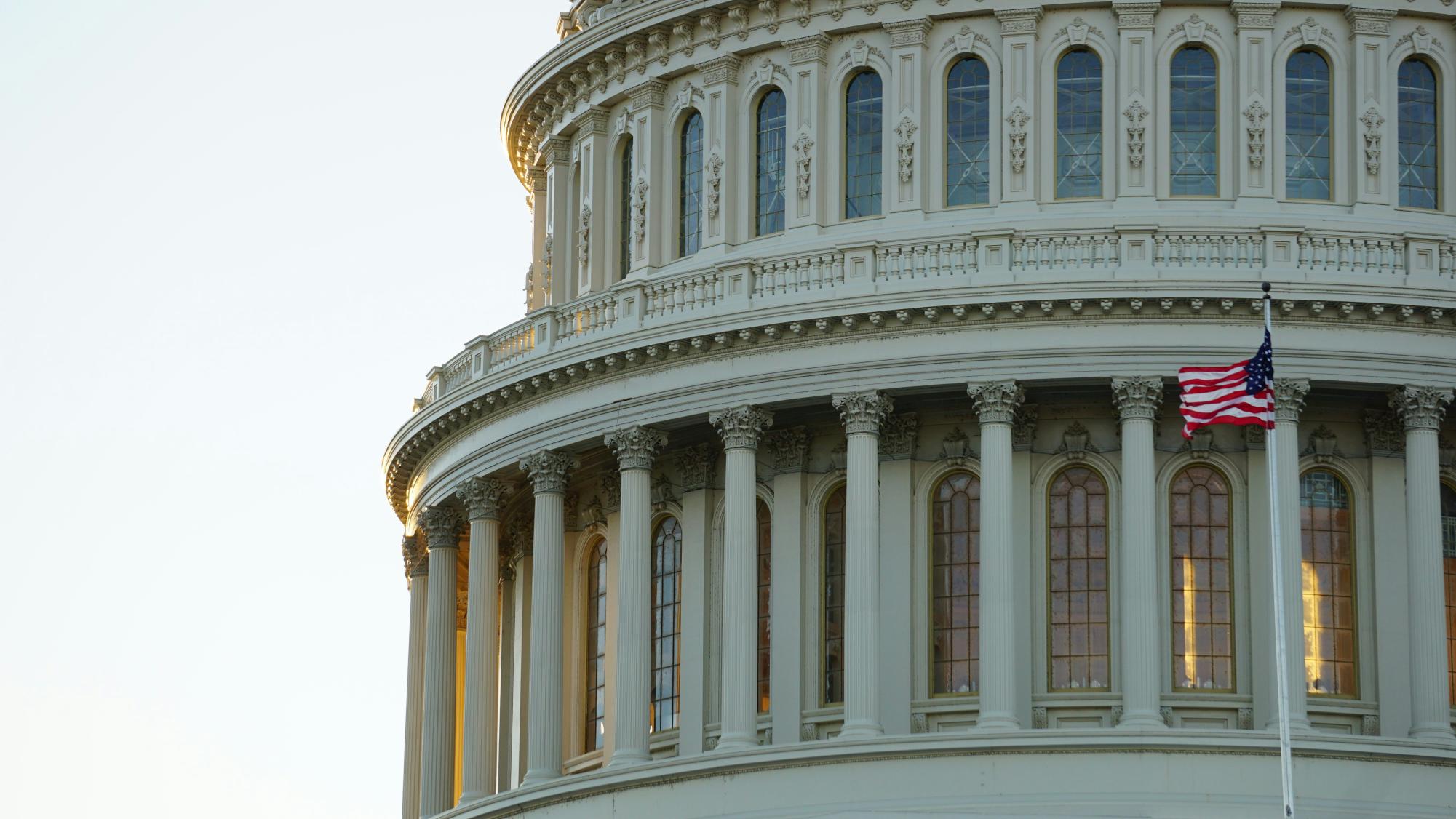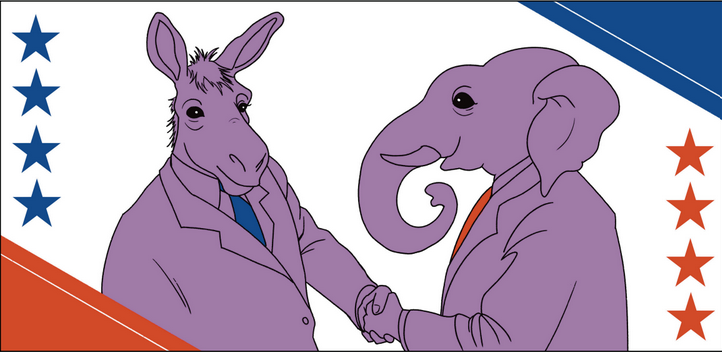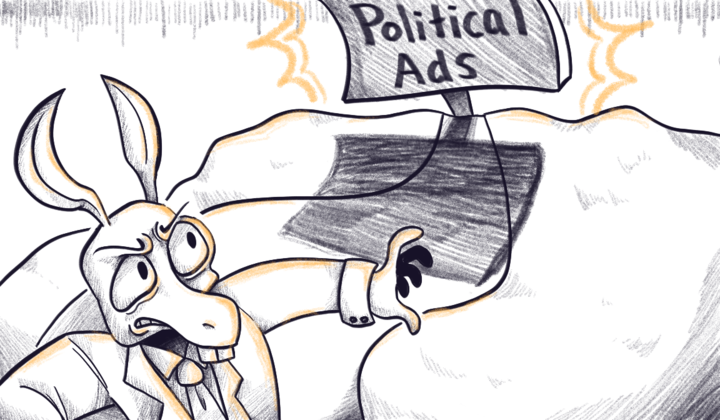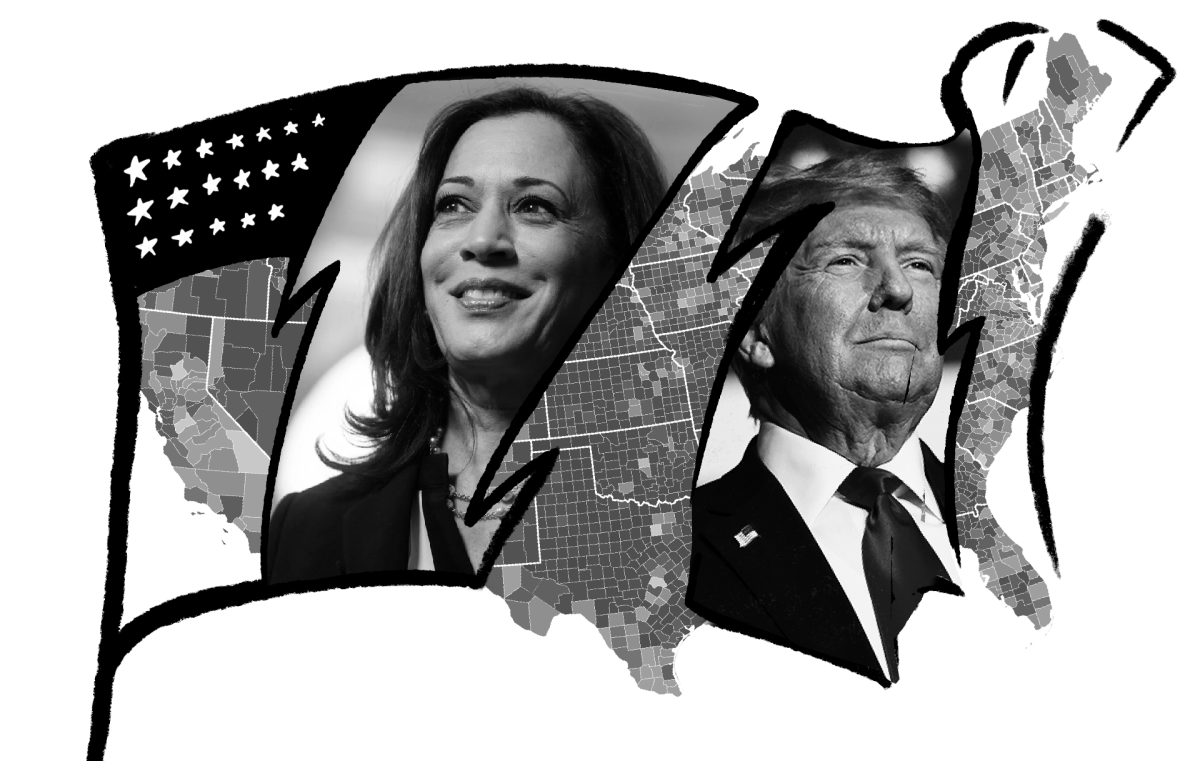The 2024 United States Senate elections in California are already underway, with voters up and down the state already returning their mail-in ballots for the primary that officially takes place on March 5. Four major candidates are competing for the top two spots in the blanket primary: Adam Schiff, Katie Porter, and Barbara Lee — all Democratic congresspeople — while Steve Garvey is the sole Republican. The winner in November will succeed Laphonza Butler, the interim senator appointed after the passing of Dianne Feinstein in September of last year.
The California Senate race is often referred to as the jungle primary system. However, the current race has uniquely seen heightened tensions between politicians within the same political party, and campaign attacks have manipulated the political narrative to an immensely complex degree, leaving many voters confused as to who the “right” choice truly is. Below, we highlight three candidates and focus on their policies and our reasoning behind casting our votes.
Claudia Silvera on a strategic vote:
To begin, I would like to acknowledge that Steve Garvey is a poor choice for U.S. Senator, from his policies to his person. But the politics of the 2024 race might make Garvey an appealing option for politically savvy Democrats who are hoping for a Democratic Senate majority. A vote for Garvey is by no means supporting him as Feinstein’s successor, but voting for him in the primaries might be the most impactful thing California Democrats can do to help the party keep control of the Senate come November.
Garvey’s actual fitness for office is severely lacking. His debate performances throughout this primary season have verged on inarticulate, and he seems to lack any real qualifications, except a recognizable name to those who grew up watching him play baseball for the Los Angeles Dodgers and San Diego Padres. As a candidate, Garvey seems to rely on simultaneously emphasizing and downplaying that he is not from California, reflecting a seemingly total lack of political acumen. His policy positions are based on fantasy: the homelessness crisis can be solved through mere fiscal responsibility; law-and-order policing; old-school America-as-the-global-police interventionism; and “supporting our ally Israel yesterday, today, and tomorrow.” Basically, Garvey comes across as a candidate trying to revive nostalgia for ’80s and ’90s paleoconservatism, which is out of touch for a deeply blue California and the modern Republican party as a whole.
But making sure that this Republican beats Porter to the runoff – bizarrely enough – is a good political strategy for Democratic voters, and vice versa. Schiff currently leads the polls and will likely advance to the general. However, Garvey is easily beatable, and should he advance, Schiff can turn his fundraising prowess away from his own seat and toward tougher Senate races, helping Democrats raise enough money to hold their seats from a Republican onslaught in states like Michigan, Montana, and Pennsylvania. Schiff himself has been angling to run against Garvey; Political Action Committees aligned with him have been running campaign advertisements that appear to “attack” Garvey but are really designed to amp up Republican turnout and knock out Porter.
If Porter had more than an outside shot at beating Schiff in the general, I would not even mention voting for Garvey. But the polling says no: a USC-CSU poll showed that Lee’s supporters will break for Schiff when she is eliminated with 51% versus only 23% for Porter. Garvey’s supporters also favor Schiff over Porter as a second choice, 12% to 7%. The poll also found that for the jungle primary, Porter was 10 points behind Schiff already, 25% to 15%. My colleagues make fantastic cases for why Porter and Lee are better candidates for the job than Schiff and Garvey — I wholeheartedly agree with those views. Indeed, giving into Schiff’s attempt to end-run the democratic process by boosting an unpopular rival feels unsavory. The principled vote, in this case, might not be the most efficient or secure path toward upholding Democratic power.
Jordan Nakagawa on moral politics:
Porter’s values throughout her political career have largely remained a moral one. Due to her heartfelt devotion to the American people and strong disapproval of government and corporate relations that exist solely to facilitate profit for the upper echelon of society, Porter is a candidate voters should hold in high regards and consider supporting.
In the past, Porter has taken great strides in fighting against middle-class exploitation from Wall Street banks that have cheated Americans of billions of dollars in debt relief. She has heroically called out large financial institutions in hopes of ensuring the financial security of hard-working families. She also opened a consumer protection legal clinic and was appointed by the California attorney general to serve as the California Monitor of the National mortgage settlement, which she and the clinic gained national recognition for. Despite this, a recently broadcasted dark-money ad courtesy of “crypto billionaires” attempted to depict a demonized image of her, claiming that the funding Porter receives is derived from large pharmacy corporations, banks, and Big Oil. However, these claims were inadvertently falsified and statistics show that out of her campaign’s accrued $25 million, Porter receives nearly $3.4 million in funding from over 68,800 independent donors. The remaining funding primarily comes from public institutions, like the University of California.
For the past couple of years, Porter has served as a representative in the House and even throughout the political fluctuation of which party holds power in the House, she has still managed to make significant progress in pushing her humanitarian agenda. In 2022, Porter posted a video listing the legislative progress she’s made. In that video, her audience can see her notable accomplishments ranging from the recovery of the U.S. tax dollars Big Pharma collects from overzealously raised prices of prescriptions to drafting legislation that would raise fees for polluters that drill on public land in order to compensate for bloated taxation and the damaged environment.
The immensity of Porter’s campaign and the heavy following she has accumulated makes her a candidate potentially strong enough to take on Schiff in the upcoming November election. Lee, another democratic candidate for the Senate seat, unfortunately, does not have nearly enough support to swing this election, and as previously mentioned, Garvey will simply ensure Schiff’s victory in the November election — not that a Democrat would wish for him to take the seat anyway. To prevent the morally sound and stellar candidate, Porter, from slipping through the cracks, I urge all eligible voters to consider the value of voting for her, as we could potentially see a politician for the people active in the U.S.
A vote for Porter is supporting the reform of the foundational aspects of the electoral system, allowing the American people to cast their vote based on the values and ideas of a politician rather than the values of the corporations backing them. Change starts with the people, and by voting for Porter we will see progressive influence in the Senate while knowing that industry influence will not corrupt her motives.
Jaechan Lee on a vote against injustice:
Although candidate Lee is polling low in competition with Schiff and Porter, she represents the principled vote for progressive voters. Prior to her political career, Lee’s background was void of privilege and opportunity. When Lee was born, the segregated hospital refused to admit her mother because she was Black. Following a divorce in 1966, Lee was left homeless as a single mother and had to go on food stamps and public assistance to provide for her two children whilst pursuing her Master’s degree in social work. With her prior experiences in mind, it is clear that Lee’s political involvement and motivations for creating policy are not borne out of a sense of power, but rather a sense of duty and a personal understanding.
Additionally, Lee’s background of involvement in politics makes her a worthy candidate. Lee has most notably served as a U.S. representative from California since 1998. She was also involved in the political campaigns for Bobby Seale’s mayoral run and Shirley Chilsom’s nomination for president in 1972; Chilsom served as Lee’s mentor. Lee’s involvement in the Black Panther party during her college years was non-violent, yet she was surveilled by the FBI for her association with the co-founders. Facing systemic class, gender, and racial barriers, Lee refused to bend the knee to injustice in her earlier years. Her background gives her a personal understanding of systemic injustice that most of the rich, elitist politicians in Washington simply do not have, especially Garvey.
Even when she was rising the ranks of the Democratic Party, her dedication to progressive causes never faltered. Following the attacks on 9/11, Lee was the only House Member to vote in opposition to the Afghanistan war. Since then, she has consistently supported progressive policies akin to that of Bernie Sanders, endorsing Medicare for All and calling for a 10% reduction in the military budget. From supporting the Green New Deal to criticizing former President Barack Obama for his drone strikes in the Middle East, there should be no doubt that Lee has been a stalwart figure for American progressives.
Her commitment to anti-war policy has continued into 2023. Lee was the first candidate to call for a ceasefire in Gaza during the IDF’s slaughter of 30,000 Palestinians. Meanwhile, Schiff and Garvey have yet to commit to a ceasefire, and Porter went so far as to initially express support for Israel. When it comes to something as blatant and cruel as Israel’s actions in Gaza, it should be a matter of principle instead of political strategy. Voters who value politicians who are quick to oppose the genocide in Gaza should consider Lee as a prime candidate due to her commitment to understanding and fighting against systemic injustice.












